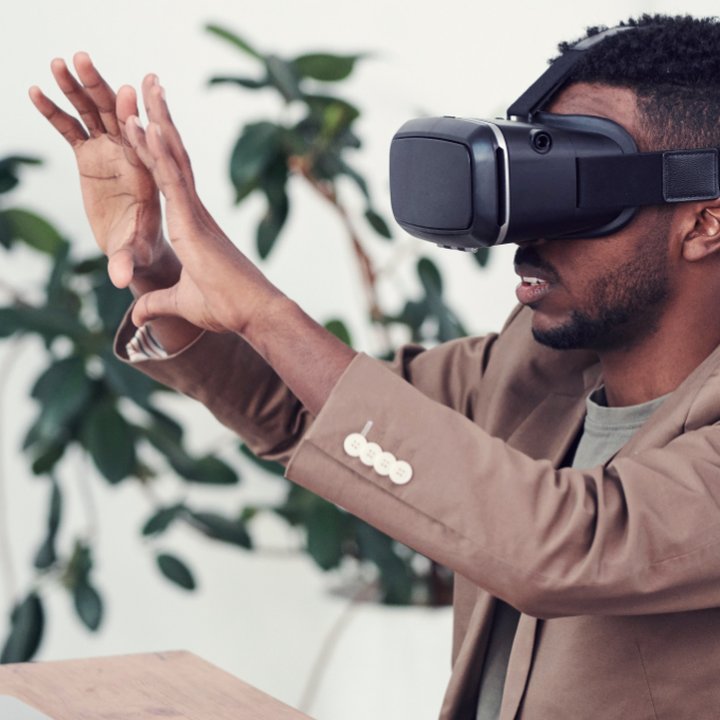AI Shaping the Future for Generation Alpha
Just as mobile phones and the internet have shaped the lives of previous generations, AI is poised to have a profound impact on Generation Alpha, the group still being born today.
June 29, 2023

According to the research, a staggering 63% of consumers desire brands to provide them with multisensory encounters, with 82% expecting the engagement of as many senses as possible when experiencing something new.
In today's technologically advanced world, brands are constantly seeking new ways to captivate consumers and forge meaningful connections. The demand for multisensory experiences has surged, especially after a period of sensory deprivation caused by the pandemic.
Traditionally, visual stimulation has dominated consumer experiences. However, with recent advancements, brands can now tap into all the senses to create truly immersive environments. Xydrobe, a pioneering experiential concept for luxury retail set to launch in 2023, aims to transport shoppers to virtual realms using stunning visuals, scents, surround sound, and temperature control. By leveraging multisensory elements, Xydrobe's CEO, Nell Lloyd-Malcolm, believes they can elicit emotional reactions and provide unparalleled experiences akin to those found in blockbuster Hollywood movies.
Major players in the tech industry are joining forces with the entertainment sector to create unforgettable immersive experiences. Canon, in partnership with Universal Pictures, showcased their latest immersive tech innovations at CES 2023. Visitors were transported into the storyline of the thriller film "Knock at the Cabin" through immersive technologies, including Canon's Kokomo virtual reality (VR) software and the Canon MReal mixed reality headset. By interacting with photorealistic environments and assuming the roles of movie characters, users could barricade virtual furniture to fend off attackers, creating a heightened sense of presence and excitement.
The Sense of Touch: While vision and sound have been successfully integrated into immersive experiences, the sense of touch has yet to be fully realized in virtual environments. Jody Culham, a Canada research chair in immersive neuroscience, points out the absence of tactile sensations in current virtual reality (VR) technology. However, researchers are actively working on bridging this gap. Future advancements may allow for the inclusion of touch feedback in VR experiences, enhancing immersion and further engaging the senses.

In Japan, NTT Docomo and collaborating institutions are pioneering sensation-sharing technology, enabling users to digitally transmit movements and tactile sensations. Building upon their Feel Tech technology, Docomo aims to expand the scope to include sharing other sensations such as taste, hearing, and even emotions. This groundbreaking development has the potential to revolutionize the way people connect and communicate, bringing a new dimension to sensory experiences.
Although scent is often overlooked in immersive experiences, it holds great potential for engaging viewers on a deeper level. The power of smell to evoke memories and transport individuals to different places or times is well-documented. Filmmaker A. R. Rahman premiered "Le Musk", a VR cinematic experience at the 2022 Cannes Film Festival, incorporating scent as a narrative device. The film was accompanied by bespoke scents created by The Feelies, a London-based multisensory extended reality studio. Such experiments highlight the growing recognition of scent's role in creating immersive narratives.
Aromajoin, a Japanese scent technology company, introduced the Aroma Shooter at CES 2023, enabling the synchronization of smells with videos using "solid state" cartridges. Designed for gaming or movies, this digital scent device brings multisensory experiences into the home, instantly toggling between different scents. This innovation allows users to enhance their gaming or movie-watching experiences by synchronizing smells with the on-screen visuals, further immersing themselves in the digital content.

While consumers expect digital and virtual experiences to engage all their senses, it's important to strike the right balance. Surveys indicate that 54% of individuals find multisensory experiences overwhelming. Researchers are addressing this challenge through adaptive entertainment, using AI and affective technologies to tailor experiences to individual preferences. By tracking biomarkers and employing facial recognition, future interactions with technology can be adjusted to maintain the "sweet spot" where users have the most fun.
As technology advances, the possibilities for sensory immersion are boundless. The relationship between brands and consumers will continue to evolve through AI, creating personalized and dynamic experiences. Additionally, ongoing research and development in the field of sensory technologies will likely address the current gaps, such as the integration of touch feedback in virtual environments.